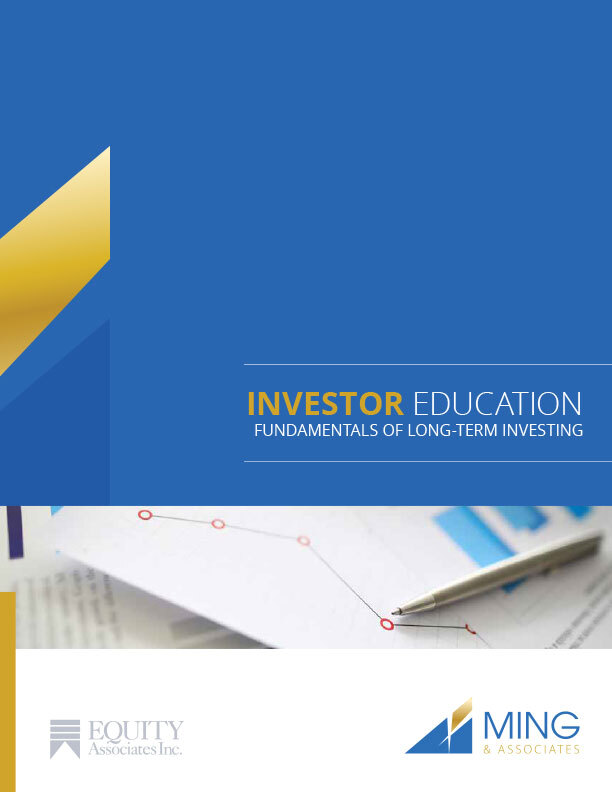Many of us are aware that we should invest our longer-term money into ownership of businesses (ie. Equities) rather than lend it to the Bank (GICs) or to the Government (Bonds). But why are some of us uncomfortable with that notion? Well a recent book full of statistical data written by an unbiased credible source, should help investors to better understand.
Most investors with a long time frame should use stocks as their primary investment class, states Prof. Jeremy Siegel of the Wharton School of Business. Prof. Siegel, the author of Stocks for the Long Run, rated by Fortune magazine as one of the top ten investment books of all time, makes a compelling case:
- When you look at U.S. equities going back to 1802, they have shown an annual after-inflation return of 7 per cent annually. As a result, one dollar invested in 1802 would have purchasing power today of $671,000. In that same period, government bonds have had an annual after-inflation return of 3.5 per cent, exactly half that of equities. As a result, that same dollar would have purchasing power
of $932, less than 2 per cent of what the stock return would have provided over that time period.The return from T-Bills was even lower, at $284. And an investment in gold during that time frame would have actually lost money after inflation. - While equities have traditionally been recognized as providing superior returns, this has been seen to come at the expense of substantially higher volatility. But volatility or risk cannot be measured or discussed without looking at time frame. For holding periods of one to five years, the volatility of equities is in fact substantially greater than bonds or T-Bills, both positively and negatively. The one-year volatility for equities is actually twice that of other asset classes.
- When holding periods go on for 10 years or longer, however, the volatility of equities is no greater than that of bonds. In fact, it is substantially lower than bonds when holding periods are looked at beyond 20 years.
- In one of his recent speeches Prof. Seigel states that one of the unique characteristics of equities has been the consistency of their return. Not only have they substantially out-performed alternative asset classes but no other asset class has delivered their returns with the same consistency.
- Prof. Siegel also addresses concerns about the valuation of today’s U.S. equity market, focusing on today’s price-earnings multiple (PE) of 30, more than twice the historical average of 14 times PE, and the highest on record. In particular, he compared today’s market to that of 1964 which had similar characteristics of low inflation, low interest rates, a long economic expansion and an extended bull market.
- The key difference in today’s market is the rate of growth of earnings for the largest stocks. In 1964, the top 20 stocks made up just under half of market valuation in the U.S. and had a five-year earnings growth of 8 per cent. AT&T, for example, represented 9 per cent of the U.S. market, and had a PE ratio of 22, and five-year earnings growth of only 4 per cent.
By contrast, the 20 largest stocks in the U.S. today had a five-year earnings growth of 21 per cent, and estimated growth for the next five years is 17 per cent. Prof. Siegel’s key point is that while the economy has grown no faster today than it did then, we are in an environment in which the largest companies have demonstrated the ability to grow their earnings at substantial rates. Provided that we continue to see good earnings growth, today’s valuations will seen to be warranted, and in some cases undervalued. However, that may not be the case for such high-tech flyers such as Yahoo and Amazon.com and other technology companies which trade at PE multiples of over 200.
The Bottom Line:
With the media frenzy around day-to-day market performance, it is easy for investors to get distracted by short-term developments. For people with a truly long-term time frame of 10 years or more, equities appear to be the unequivocal winner as the foundation for their long-term portfolio. Even in today’s times, facts should still prevail over emotion. This is best summed up with the conclusion of Prof. Seigel’s book which reads as follows “ The stock market is exciting. Its daily movements dominate the financial press and record the flows of billions of dollars of investment capital. But the stock market is far more than the quintessential symbol of capitalism or the organization through which investors can stake a claim on the economy’s future. It is the driving force behind the allocation of the world’s capital and the fundamental engine of economic growth and technological change. As the proliferation of stock markets around the world attests, stocks hold the key to enriching the lives of all peoples everywhere.”
We have a copy of Prof. Seigel’s book at the office for any clients interested in borrowing it. It is 300 pages of research and data that support our belief that investing in equities is the only way for investors to create wealth over the long term, or to avoid running out of money during 20 or 30 years of retirement.
